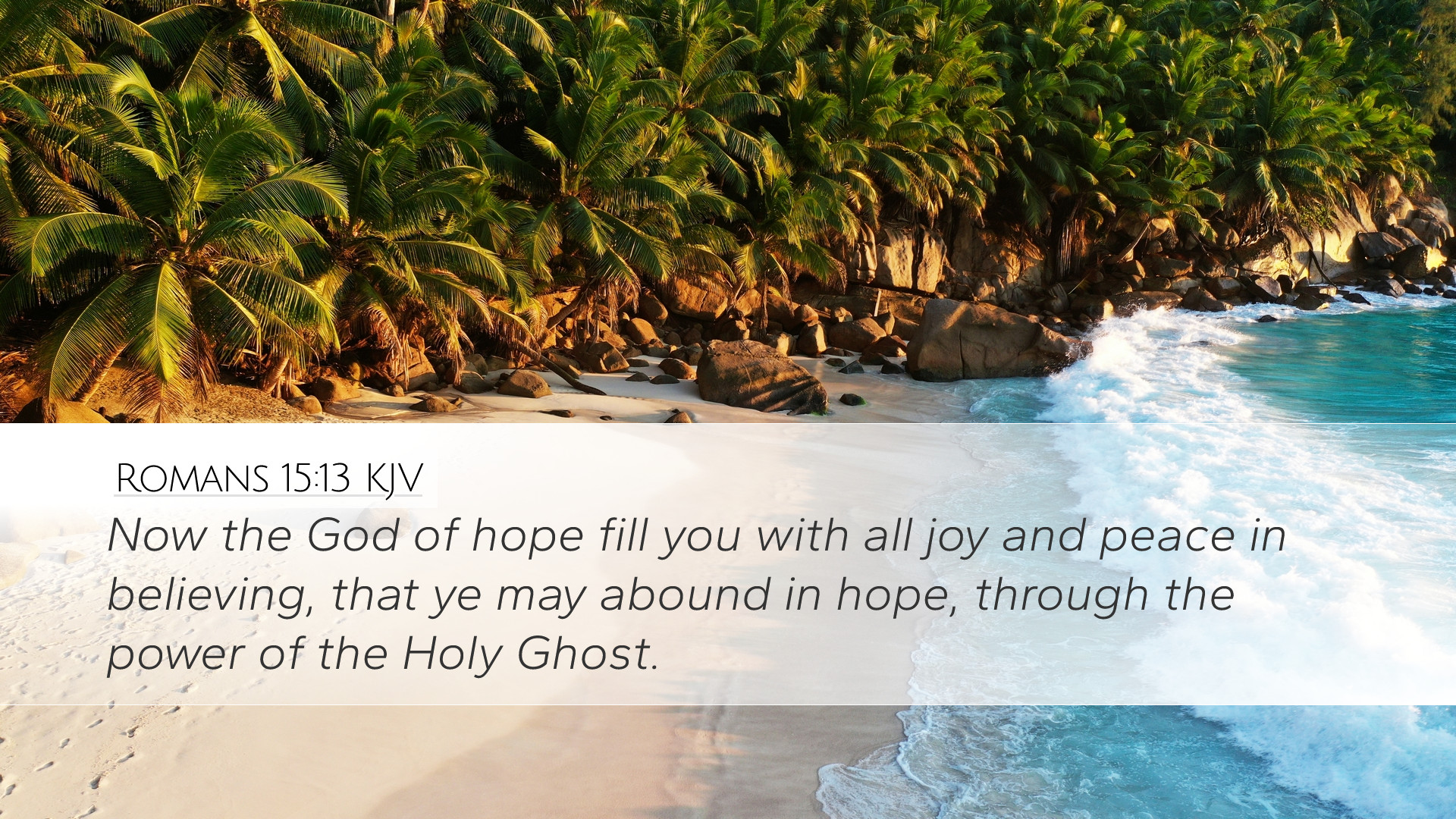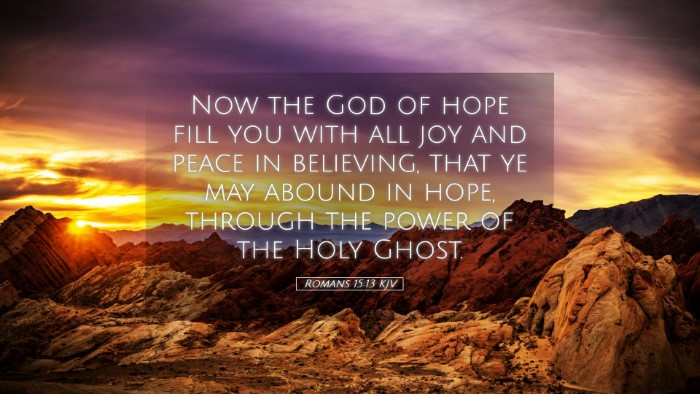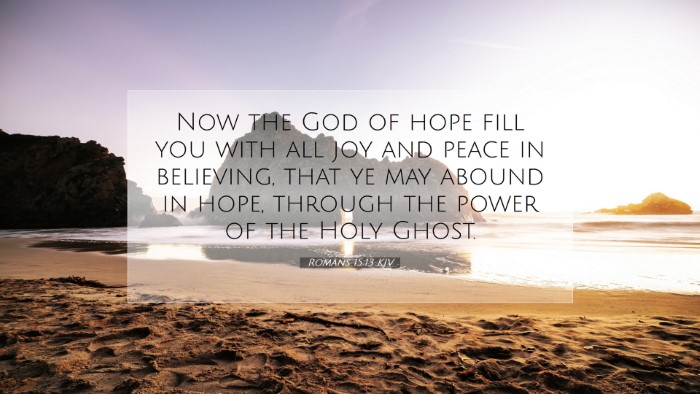Commentary on Romans 15:13
Verse Text: "Now the God of hope fill you with all joy and peace in believing, that ye may abound in hope, through the power of the Holy Ghost."
Introduction
This verse serves as a profound benediction, encapsulating the essence of the Christian experience in the context of hope. The Apostle Paul, in his letter to the Romans, emphasizes the source, content, and purpose of true hope—a theme that resonates deeply in the lives of believers.
God as the Source of Hope
Paul opens by referring to God as the "God of hope." This title emphasizes that hope is not an abstract concept but a divine reality deriving from God Himself. Public domain commentaries, such as those by Matthew Henry, highlight that hope is grounded in God's faithfulness and promises.
- God's Nature: As Henry notes, God's very essence is intertwined with hope. He is the creator of hope and the sustainer of it in the hearts of His people.
- Divine Assurance: Albert Barnes stresses that hope in God is characterized by certainty, as He is immutable and incapable of deceit.
- Active Engagement: Adam Clarke elaborates that God actively fills believers with hope, indicating that it is an ongoing work of grace in their lives.
The Filling of Believers
The phrase "fill you with all joy and peace in believing" is significant in understanding the experiential aspect of faith. Here the Apostle reveals the outcome of a vibrant faith, resulting in joy and peace. These attributes are not contingent upon external circumstances but are rooted in the believer's relationship with God.
- Joy: Henry points out that this joy is not merely transient happiness but a deep-seated delight in God's presence and promises.
- Peace: Barnes emphasizes that peace is a state of tranquility and assurance, stemming from faith in God's sovereignty and providence.
- Experiential Reality: Clarke discusses how these gifts are experiential—they manifest only through a life of belief and trust in God.
The Purpose of Hope
Paul further clarifies that the purpose of being filled with joy and peace is "that ye may abound in hope." This phrase underscores the dynamic nature of hope. It suggests an overflowing, abundant experience of hope that is a testimony to others.
- Abundance of Hope: Henry reflects on how this abundance is not merely for personal benefit but to equip believers to face adversity and contribute positively in their communities.
- Empowerment by the Holy Spirit: As noted by Barnes, the fullness of hope is realized through the "power of the Holy Ghost." This indicates a divine enablement that empowers believers to persevere.
- Communal Impact: Clarke comments on how this hope should extend beyond the individual, impacting the community as believers reflect the hope of Christ in their actions and words.
Conclusion
Romans 15:13 presents a rich tapestry of theological insight concerning hope. It encompasses the source of hope (God), the resultant joy and peace in believing, and the purpose of abounding hope through the Holy Spirit. For pastors, theologians, and students, this verse serves as a reminder of the integral role hope plays in the Christian faith and the necessity of nurturing this hope through reliance on God’s promises.
As believers, we are invited to partake in the divine nature of hope, to embody joy and peace, and to become conduits of hope in a world often characterized by despair. In embracing the truth of this verse, we are encouraged to live fully in the assurance of God's faithfulness and to express the hope we have in Christ to those around us.


